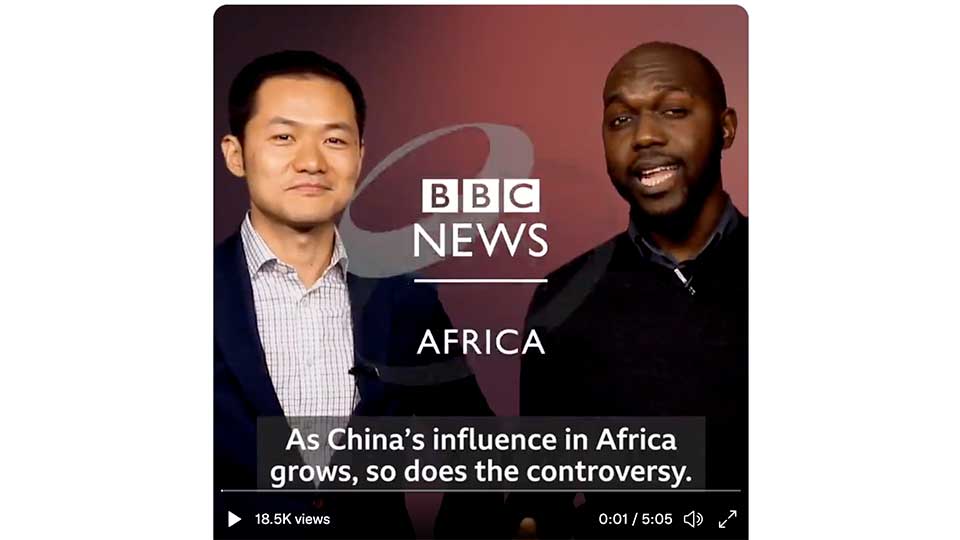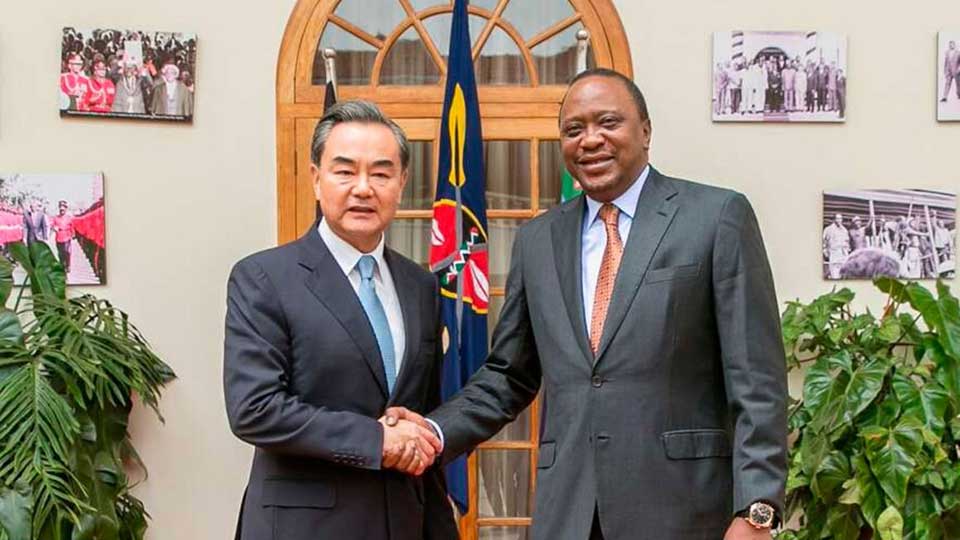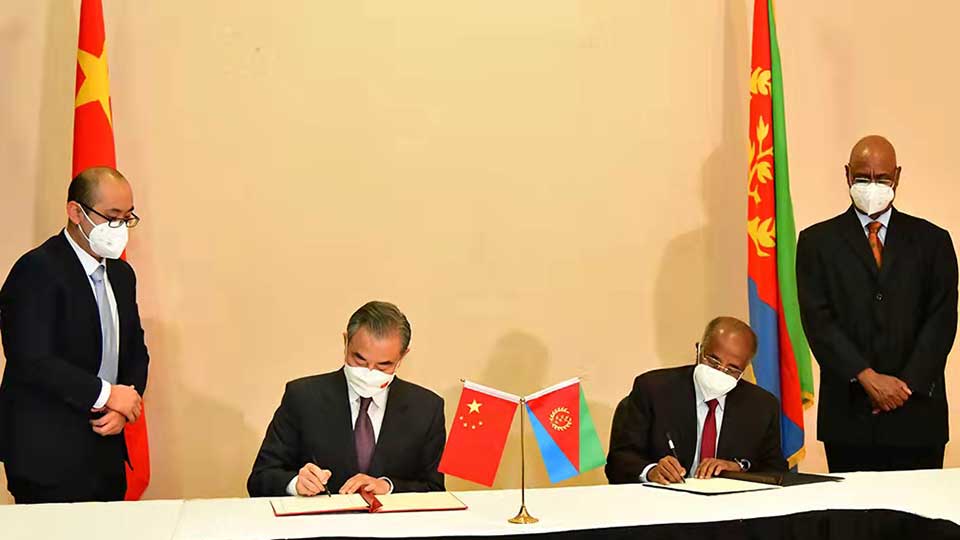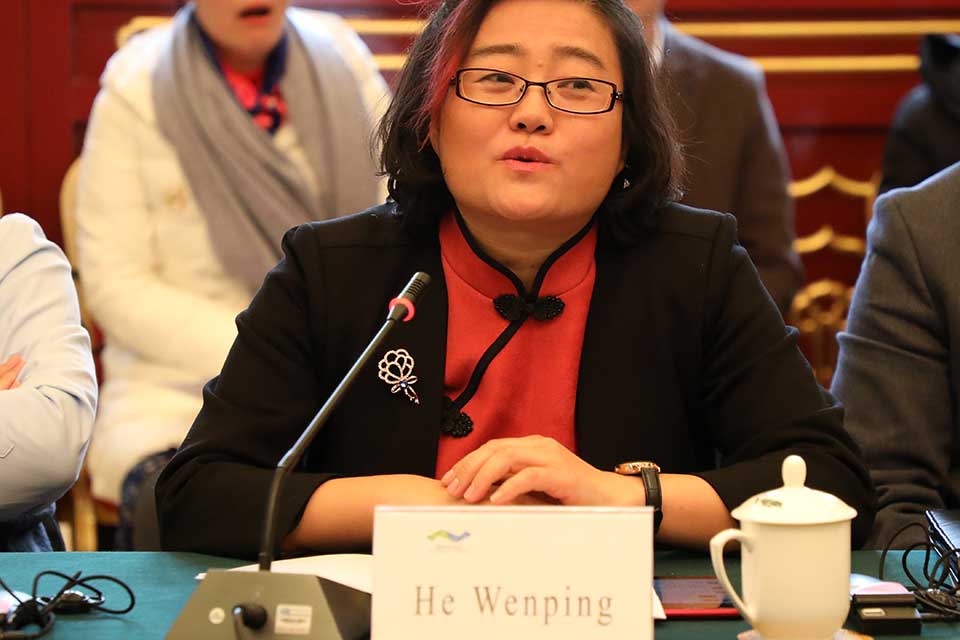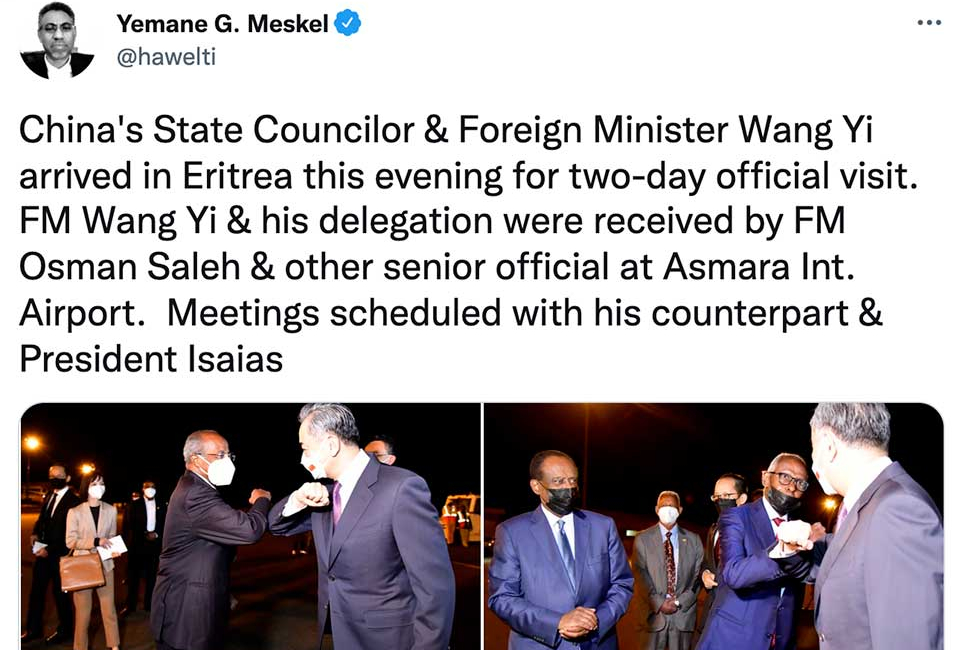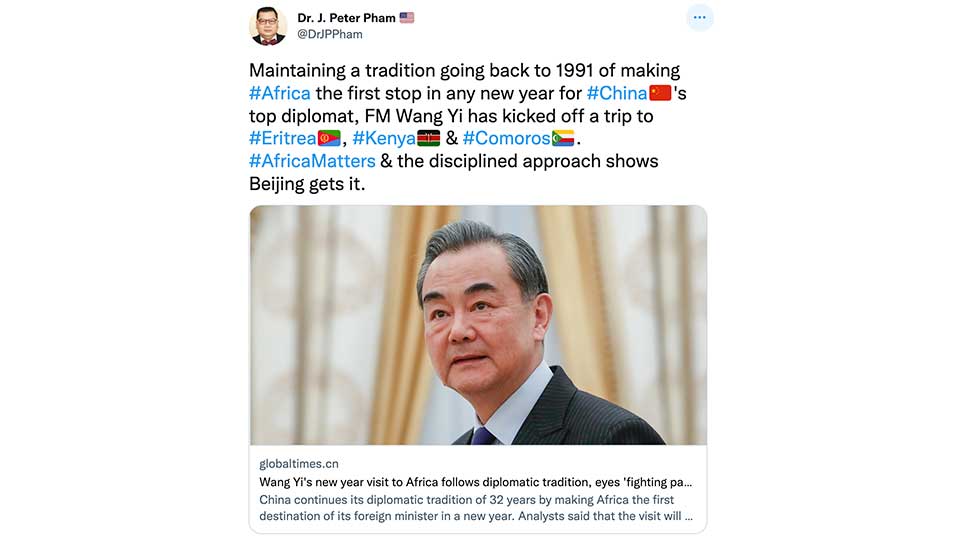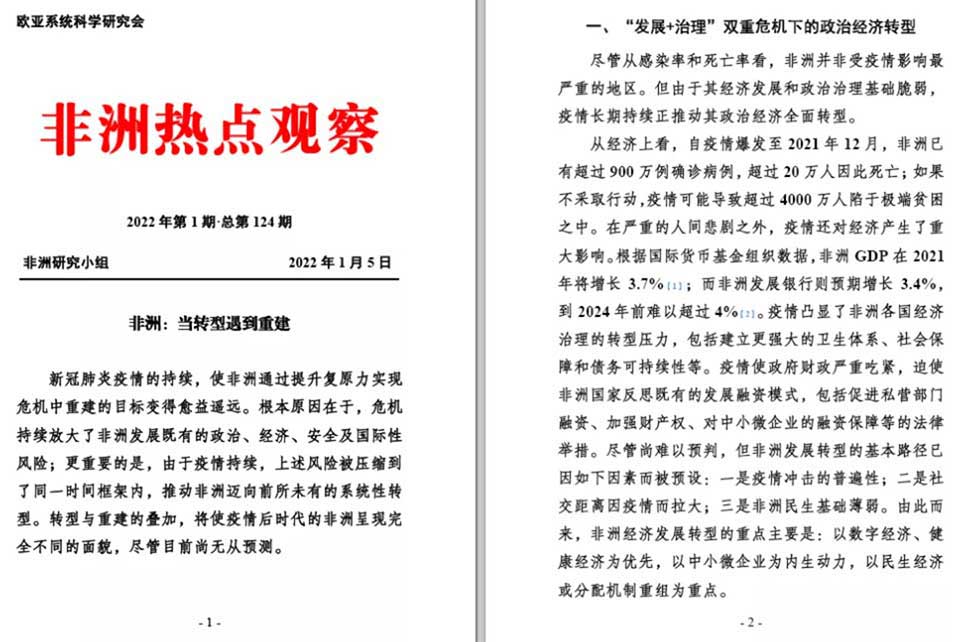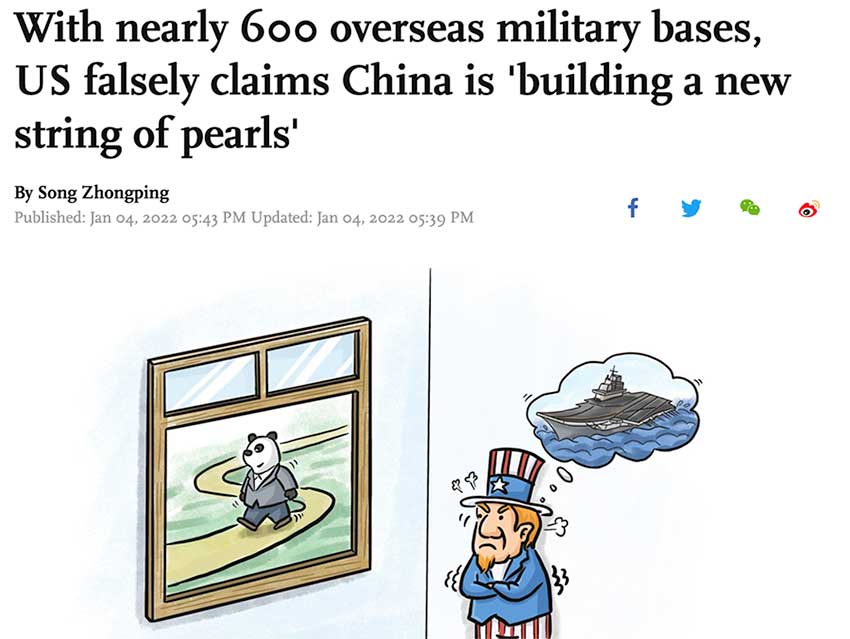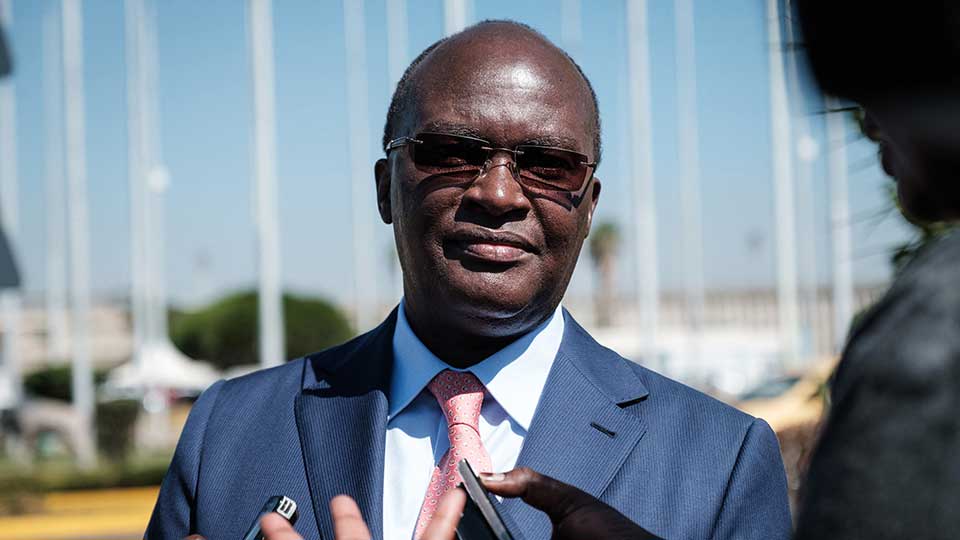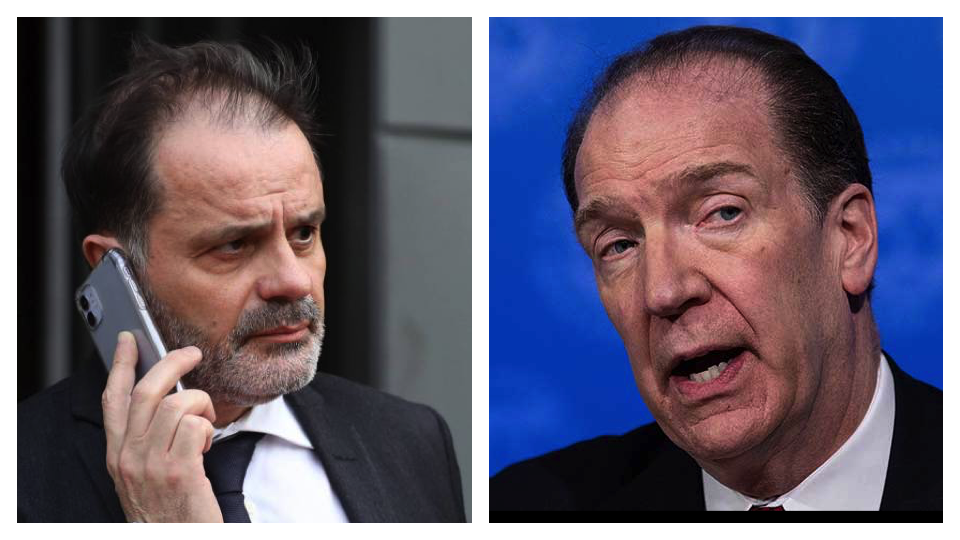Live Feed
The News Feed is curated by CGSP’s editors in Asia and Africa.
The BBC used the occasion of Chinese Foreign Minister Wang Yi’s three-nation African tour last week to reset its coverage of China-Africa relations. This follows a dismal performance during last December’s FOCAC conference, ...
China Wants to Play a Bigger Diplomatic Role in the Horn of Africa, Setting Up Potential Confrontation With the U.S.
It was a remarkable coincidence that both the United States and China announced the appointments of special envoys for Ethiopia… on the same day. The State ...
WEEK IN REVIEW: Mounting Anxieties About the Security of Chinese Personnel in Nigeria
Officials from China’s powerful Ministry of Public Security met last week with Chinese diplomats in Nigeria and expatriate business leaders to discuss how to better protect Chinese personnel and enterprises operating in the ...
Debt, Trade, and Infrastructure Expected to Top the Agenda For Wang Yi’s Visit to Kenya
Chinese Foreign Minister Wang Yi arrived in Kenya late Wednesday afternoon, the second stop on his three-nation Africa tour. He left Eritrea to fly directly to the port city of ...
This Will Likely be the Last Time Wang and Kenyatta Meet in Their Current Roles, Ending a 9-Year Professional Relationship
Thursday’s meeting between Kenyan President Uhuru Kenyatta and visiting Chinese Foreign Minister Wang Yi at the State House in Mombasa will likely be their last in their current roles, bringing to a close ...
China’s Share of Kenya’s Total Debt Shrinks as Borrowing Surges
Kenya’s Parliamentary Budget Office (PBO) is forecasting the country’s total public debt will reach $78 billion this June and $86 billion by the same time in 2023. Meantime, China’s share of ...
Wang Yi’s Visit to Eritrea Was Symbolically Important But Produced Few Tangible Outcomes
Chinese Foreign Minister Wang Yi (left) wrapped up his brief visit to Eritrea on Wednesday by signing a broadly-worded joint statement with his counterpart Osman Saleh (right). The statement was largely boilerplate, ...
One of China’s Top Africa Scholars Tries to Explain How Wang Yi Chooses What African Countries to Visit and Also Responds to Debt Trap Accusation
For 32 years, Chinese foreign ministers like Wang Yi have made it a priority to go to Africa for their first overseas trip of the year but little is known about what goes ...
Was a Chinese Mine in the DR Congo Looted After the President Paid a Visit? The Mining Minister Says No, But Video Says Otherwise
The DR Congo’s Mining Minister Antoinette N’samba is trying to quell accusations that the Chinese-owned Anhui Mining Investment Company (SACIM) was ransacked by looters last week after she and President Félix Tshisekedi visited the facility ...
Wang Yi Begins Week-long Africa Tour in Eritrea But You Wouldn’t Know It From Chinese State Media
Chinese Foreign Minister Wang Yi landed in the Eritrean capital Asmara on Tuesday evening to kick off a three-nation, four-day Africa tour that also includes stops in Kenya and the Comoros Islands in ...
Rare Praise For China From One of Beijing’s Most Outspoken Critics in Washington, D.C.
Peter Pham, the former Trump administration diplomat in Africa and one of China’s most vocal critics in Washington, surprised even a few of his own followers on Tuesday when he posted rare praise ...
Infographic Details Three Decades of Chinese Foreign Ministers’ New Year Tours to Africa
Wang Yi’s current visit to Africa is the continuation of a 32-year tradition where the first overseas trip of the year by a Chinese Foreign Minister is always to Africa. This custom didn’t ...
Chinese Scholar Identifies Three Pillars of Great Power Competition in Africa
It’s a relatively recent phenomenon for China to frame its relations in Africa within the larger context of great power competition with the United States and the European Union. Prior to the Trump ...
Chinese Propaganda Still Fuming Over Pentagon Claim that Beijing Wants to Build an Atlantic Military Base in Africa
It’s been exactly a month since the Wall Street Journal published the Pentagon’s latest claim (albeit not a new assertion) that China plans to build a new ...
Conservative Think Tank Analysts in DC Want the White House to Formally Recognize Somaliland as a Challenge to China
There are growing calls among prominent conservative foreign policy analysts in Washington, D.C. for the United States to extend formal diplomatic recognition to the self-declared state of Somaliland as a way to confront ...
China’s Zero-COVID Policy and Travel Restrictions Leaves Thousands of Young Africans in Limbo
With China’s borders all but sealed and no prospect of reopening soon as long as strict COVID-19 mitigation protocols are in effect, tens of thousands of African students are left wondering what’s going ...
East Africa’s New Year’s Resolution: Borrow More Money
Kenya, Tanzania, and Uganda are starting 2022 with an eye on borrowing hundreds of millions of dollars to fund new infrastructure development and to help close the finance gap created by the ongoing ...
Unlike Many Other African Currencies, the Zambian Kwacha Had a Great 2021, Buoyed by Hope for a Debt Deal
While currencies like the Kenyan shilling and the Nigerian naira lost value in 2021, the Zambian kwacha enters the new year with some serious momentum. The kwacha surged 27% last ...
Why This Photo May Indicate That China’s Mining Contracts Problem in the DR Congo Has Been Resolved
DR Congo President Félix Tshisekedi’s office published a photo of a Christmas Eve meeting with Sun Ruiwen, president of China Molybdenum (aka “China Moly.”) The company controls the massive Tenke Fungurume cobalt and copper mine ...
Ghana Approves Homegrown Smart Cities Solution That Will Use Both Chinese and U.S. Tech
Ghana’s National Communications Authority (photo) granted local internet services provider Celltel approval to build the $300 million Ghana Smart Cities Project that will provide national wireless internet coverage. The company said it plans ...
Chinese Vaccines Still Slowly Trickling to Africa, No Uptick in Deliveries Since Xi Speech
Only been five weeks have elapsed since Chinese President Xi Jinping announced China would distribute one billion doses of COVID-19 vaccines to Africa, so it’s still a bit early to ...
Former Ambassador’s Column in Le Monde Highlights the Negative View of “Chinafrique” Among Political & Media Elites in France
Generally speaking, the widely-held narrative among media and political elites in France about the Chinese in Africa is very similar to that in the United States where the Chinese presence on the continent ...
Kenya’s Transport and Infrastructure Minister Explains Why Big Projects All Go to Chinese Contractors
Kenya’s straight-talking Transportation and Infrastructure Cabinet Secretary James Macheria (photo) bluntly explained why the government consistently awards major infrastructure projects to Chinese contractors: For any project, we go through a ...
Two Leading International Development Finance Heads Single Out China For the Ballooning Debt Crisis in the Global South
Two of the world’s most prominent development finance leaders, Emmanuel Moulin (left), chair of the Paris Club, and World Bank President David Malpass (right), separately named China as one of the key factors in ...
When France Builds a Train in Africa, the International Media Coverage is Very Different Than When China Does
Senegalese President Macky Sall launched a new 40-kilometer commuter railway last week that will link the industrial city Diamniadio with the capital Dakar. The debut of the new Regional Express marked an ...
WEEK IN REVIEW: Kenya’s Monetary System Struggling Under the Weight of Chinese Debt Servicing Obligations
The demands of servicing debts, largely to China, are weighing heavily on Kenya’s monetary system. The shilling dropped again in Monday trading and the central bank reported that foreign exchange reserves have plunged ...
In a Potentially Troubling Development for Africa, Sinovac Did Not Perform Well in Early Test Against Omicron Variant
Researchers at the University of Hong Kong (HKU) found that people inoculated with two doses of Sinovac’s COVID-19 vaccine did not produce sufficient detectable levels of antibodies needed to fend off ...
Sinovac’s Limited Distribution in Africa May End Up Being a Blessing if Omicron Spreads
Distribution of Sinovac’s CoronaVac COVID-19 vaccine remains relatively limited in Africa, according to data from Bridge Consulting’s weekly vaccine tracker report. So, if the vaccine is not able to effectively counteract ...
Even Though More Countries Have Received Chinese Vaccines, Distribution Remains Highly Unequal
There does not appear to be any pattern to the inconsistent distribution of Chinese vaccines in Africa over the past 12 months. For much of the year, North African countries accounted for the ...
Iranian Security Service Buys Advanced Video Surveillance Technology From China
One of China’s largest video surveillance companies, Tiandy, is reportedly selling large quantities of sophisticated AI-enabled cameras with facial recognition technology to Iran’s Revolutionary Guard and other Iranian security services,
Introducing CGSP Intelligence
CGSP Intelligence gives you the information advantage on Chinese activities in the Global South. CGSP Intelligence is launching in Summer 2025, with analysis and a full set of data tools designed for corporate and enterprise leaders.

